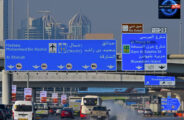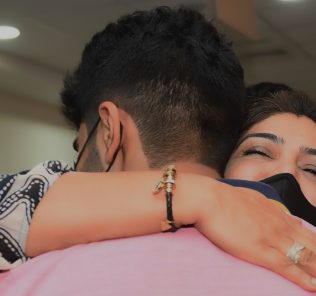UAE school students went back to school for just one day after a three-week Spring Break this Monday 15 April, before schools closed yet again on Tuesday 16 April, and they are set to remain shut until at least Friday 19 April due to the fallout from Tuesday’s historic storm event.
Earlier this year UAE schools already closed for two days due to adverse weather in February 2024, meaning it will be at least six extra rain days that students have been off school in 2024 so far – a worrying global trend of unstable weather that could be a story all on its own.
Although weather-related closures are vital for safety reasons, and schools are doing a brilliant job of delivering the teaching instruction over distance learning, the fact that this rain disruption has happened so soon after an especially lengthy Spring Break – which this year was extended to include the five-day Eid Al Fitr public holiday – has some parents asking: ‘Do UAE school children have too much holiday?’ Do so many breaks at such a crucial point in the academic year risk learning loss? And, if the UAE has more holiday than most countries, when does all the work get done?
‘It seems like my children are hardly ever at school’
Depending on where you come from, it might seem as if your children are rarely at school compared to the norm in your home country – especially if you consider the UAE’s regular 4.5-day week, as well as the shortened school hours that happen over Ramadan. But is this true, or just a perception? And do more days of instruction equal better student outcomes anyway?
The minimum number of days of instruction in UAE schools is 182 days; that’s just less than half the number of days in a year. By contrast, the minimum number of school days is 190 in the UK, between 203 – 209 in the Philippines and up to 240 days per year in India.
However, there are also plenty of countries that have fewer required school days; in Sweden the minimum is 178 days, while in Italy and the USA the minimum number is 180, although some States have just 175.
There is much debate about the ideal number of instruction days at school per year, and about the relative pros and cons of longer holidays. Research is conflicting; while a systematic review from 2009 showed that longer or a greater number of school days can support learning for those students who are most at risk of failure, a more recent study suggests that decreasing absenteeism of students who frequently miss school-instruction days is likely to be more effective than simply extending the academic calendar for everyone.
Parents, teachers and students will all have their different views, with some pointing out the ‘learning loss’ that can happen over longer vacations, or the difficulty of finding alternative childcare provision, while others argue for the benefits of down-time and the opportunity to travel or spend time in valuable ‘real-world’ learning.
For example, the UAE’s 4.5 day working week – wherein schools and government offices are all required to finish by 12pm on a Friday – was adopted at the beginning of 2022 in a move to improve family bonding and wellbeing. While this cuts down the total time that children spend at school on one day, global research shows that it’s not the number of hours spent in a school environment that impacts children’s learning, but how that time is used. See UAE Principals’ thoughts on how time spent outside of school can have important benefits for learning and development.
Do more UAE school holidays affect students’ learning?
With generous school holidays, 4.5-day weeks and public holidays that are often not announced until the last minute, it is common for parents to wonder whether this will affect their child’s ability to learn. But schools are keenly aware of the need to remain agile, and allow for this in their timetable plotting at the beginning of the year, says Simon Herbert, Head of School/CEO, GEMS International School – Al Khail:
“We are well used to being agile around holidays and there are certain days which remain flexible, and we give as much warning of any changes as possible.”
“The IB stipulates a number of hours that must be covered, according to the programmes, so we simply align this with our school schedules and yearly calendars.
“We have calendar and events meetings, and the curriculum coverage is paramount and well planned in advance.”

Simon Herbert, Principal of GEMS International School Al Khail
However, Michael Davies, Head of Secondary at Safa Community School (SCS), says that SCS offers extra tuition throughout the UAE school holidays – and even at weekends during term time – in order to support students who are preparing for examinations, and to combat any potential learning loss:
“It goes without saying that whilst we want all our students to have a break during the holiday time, spend time with their family and friends, and travel, it is also essential to continue the momentum that has been built. A three-week absence without structured work can significantly impact the attainment and progress of any student, which is why we encourage all our students to engage with the work that their teachers will set for them but in a balanced manner.”

Pictured, left to right, Johnathan Westley, Managing Editor SchoolsCompared, Sameer Merchant, Managing Partner Safa Community School, Michael Davies, Head of Secondary Safa Community School and Leanne Fridd, Principal of Safa Community School.
Mr Davies says that SCS carefully planned optional Spring Break materials to ensure their students are not disadvantaged by the additional holiday time:
“We also open our doors and encourage our exam students to undertake our live lessons on-site. Staff are timetabled to offer support and tailored revision sessions during the break.
“This is the norm at SCS, where in the months leading up to GCSE and A level exams, we offer ‘Saturday School’. Over 90% of our exam cohorts attend from 9 am to 11 am on a Saturday morning to access free revision sessions from their specialist exam teachers. “We have been running this scheme for the past five years, and it has been instrumental in our exam success. This support continues even when our exam students have finished their courses and begin their study leave.”
British online school King’s InterHigh, which has a thriving school population in the UAE and Middle East, had only a two-week Spring break this year, says Tahoora Urehman, Head of Middle East and South East Asia at King’s InterHigh, and they also offer additional learning opportunities during holidays:
“During all holidays we have a dedicated team of staff who remain in school to support parents and students across our three timetable zones for the Middle East, Southeast Asia and the UK. Students also have access to recordings of previous live lessons and all learning materials 24/7, which is particularly valuable in the lead up to exams.
“Whilst educational experts recommend structured learning activities during breaks, ongoing reading habits, and educational enrichment opportunities, we also believe in the importance to balance academic study with the need for students to rest, rejuvenate, and pursue other interests during their time off.
“The key is finding a balance that prevents significant learning loss while also respecting the value of downtime for students.”
Of course, Kings InterHigh students have not faced any disruption over the recent rain days, points out Ms Urehman:
“The weather never disrupts our school day; after all, we are an online school and have been for 18 years.
“Unlike remote learning that’s often hastily arranged in response to unforeseen circumstances, King’s InterHigh is purpose-built with the intent to deliver a comprehensive, engaging, and high-quality educational experience that’s fully online.
“Moreover, our approach to online schooling is proactive rather than reactive. We use interactive tools, real-time feedback, and personalised support to ensure that every student not only meets but exceeds their academic goals.”

Tahoora Khalil Urehman receiving the award for Best Online School’ at The Top Schools Awards 2024 for King’s InterHigh
Who decides how many days UAE students spend at school?
The UAE Ministry of Education (MOE) sets the minimum number of UAE school days in the year for all public and private schools. It also stipulates certain holiday beginning and end dates that cannot be deviated from. See here for a full list of UAE school holidays 2023 – 2026.
All schools that do not follow the MOE curriculum must have a minimum of 182 school days per academic year. MOE curriculum schools have traditionally been required to have between 186 – 188 instruction days per year, although recent announcements suggest that MOE schools may have also joined private schools with a minimum of 182 days per year.
The Ministry of Education stipulates the following rules regarding UAE school holidays:
- Winter vacation must be 3 weeks, regardless of the curriculum being followed. Traditionally these dates are set and cannot be changed. See the dates here.
- MOE curriculum schools have 3 weeks off for Spring Break. However, private schools have previously been allowed to cut this break down to be just 2 weeks and use the extra holiday days elsewhere in the year (in 2024 all public and private schools had three weeks due to the timing of the Eid Al Fitr holiday).
- According to the MOE rules, Summer vacation must not exceed 8.2 weeks, regardless of the curriculum being followed.
Find out how to find your child’s individual school’s academic calendar online here.
So, how does the length of UAE school holidays compare to those of children around the world? With so many nationalities living in the country, every family will have its own point of comparison. Here, we look at the average number of school days for children in different countries around the world, ordered from least to most…
Minimum number of days in schools around the world
France: 162 days. The minimum is for 36 weeks per year, which would be 180 days, but because many French schools have a half-day on Wednesdays, this makes 162 days per year
Sweden: 178 days minimum; 190 days maximum
Italy: 180 days
USA: 180 days minimum
UAE: A minimum of 182 days. Schools that follow the Ministry of Education have traditionally had186 – 188 days, although it appears that this may recently have been updated to also be 182 days per year.
Finland: 190 days per year officially, although public holidays often decrease the number
UK: 190 days per year
Canada: 194 days
India: Exact amount varies widely depending on the area. Some Northern states of India can have up to 240 days, while schools in other states have just 196 days.
South Africa: 200 days per year
Australia: 200 days per year
Philippines: around 203 – 209 days
Japan: 210 days per year
Russia: 211 days per year
China: 221 days per year
See our review of Kings InterHigh here.
See our review of Safa Community School here.
See our review of GEMS International School Al Khail.
© SchoolsCompared.com. A WhichMedia Group publication. 2024. All rights reserved.













































![The Best School for STEAM [Science, Technology Engineering, The Arts and Mathematics] in the United Arab Emirates 2023 – 2024 Revealed. Top Schools Award Winner. Official. The Top Schools Award for Best School for STEAM, Science, Technology, Engineering The Arts and Mathematics in the UAE 2024 is awarded to GEMS International School Al Khail](https://schoolscompared.com/wp-content/uploads/2023/11/STEAM-main-image-reduced-316x296.jpg)






















Leave a Response